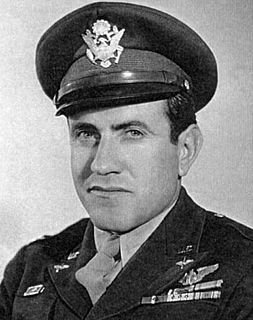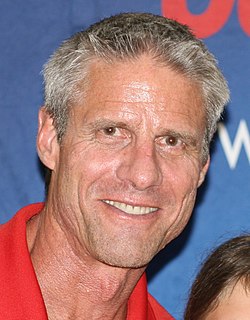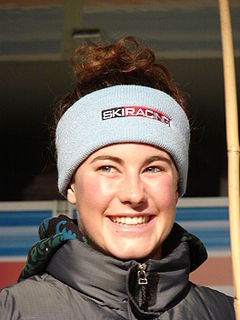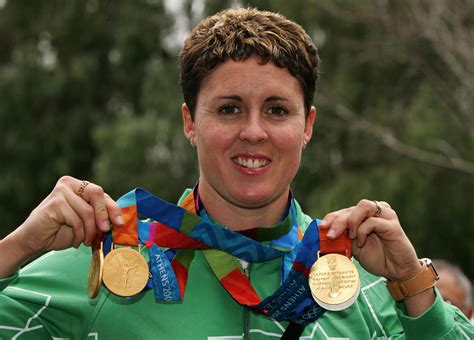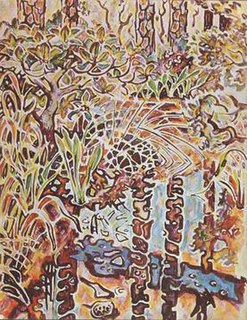Top 1032 Olympic Quotes & Sayings - Page 18
Explore popular Olympic quotes.
Last updated on November 22, 2024.
The Olympic Games are for 'the youth of the world,' but they're organized and scored by countries. It's no surprise that countries treat them as vehicles of national pride, and assume that their people will be most interested in their own athletes. So anybody who was saving up to write an angry letter, blog post, or op-ed about NBC's chauvinistic coverage: don't bother! They're actually more above-the-fray than most. Also, their coverage is not shown anywhere except America - I know, it's because I can't get it that I'm watching Women's Air Pistol - so can't ruffle feathers elsewhere.
Someone who doesn't make the (Olympic) team might weep and collapse. In my day no one fell on the track and cried like a baby. We lost gracefully. And when someone won, he didn't act like he'd just become king of the world, either. Athletes in my day were simply humble in our victory. I believe we were more mature then...Maybe it's because the media puts so much pressure on athletes; maybe it's also the money. In my day we competed for the love of the sport...In my day we patted the guy who beat us on the back, wished him well, and that was it.
My mom always has this amazing ability to always see the best in a situation. In that moment [when finished 2nd in the 200 meter race in the 2008 Olympic games] I was just completely devastated. I mean, I had worked so hard; that was my opportunity. And she was just able to turn it around for me. She helped me to be able to see the other side of things and that this is not the end for me. She's just an amazing supporter and an encouraging person and she has a unique ability to do that. And so those are the kind of things she said to me in that moment and over the next four years. When things get tough, she's always been my strength.
The beach game taught me great lessons about how to elevate the play of my teammate, or teammates, and how to anticipate and expect the ball so much more than the indoor game ever could. It taught me - even forced me - to be a much better all-around player. That allowed me to help our USA Olympic Team in many more ways than I ever could have otherwise.
For me being able to see all different places where I've skied and cherish them, and be able to see them - really see them - is something that I'm passionate about. I'm into photography, so I really enjoy taking photos of all the places that I've gone. I think that's the coolest part about being an Olympic sportsman, I get to travel around and see the world for free, technically. And get to see different cultures, and all the different people that I've met along the way - it's a pretty awesome job.
I saw my name: THOMAS, Petria. Saw my time, 57.72. Saw the number one next to them. I'd done it. Me! Petria Thomas, Olympic champion. The feeling inside was one of pure, utter joy. Excitement, disbelief, relief, hapiness, amazement, the whole works. Id worked so hard. I'd gone through so much, privately, publicly. I'd lost faith in myself and found it again. I'd sometimes stopped believing that I could do it and that I had a purpose in life. I'd come through the darkness, and this, this moment, was the sweetest, most amazing light there could possibly be. I was alive and loving it!
Back in the 1970s, I ate a high-protein diet to get bigger and stronger. As a senior at Utah State, I weighed 218 pounds with eight percent body fat, and threw the discus over 190 feet. Then I got some advice from the people at the Olympic Training Center. I needed carbs, they advised, and lots of them. They pointed to studies done on the American distance runners. Being an idiot, I took the advice to eat like emaciated, over-trained sub-performers. It took years of high carbohydrate grazing to learn the evils of this advice.
When she (my mother) passed away, I kind of understood the commitment that she made to make sure that I could stay in skating. And I wanted to live up to whatever I could. Not so much win everything, but just to be the best that I could possibly be, to honor her memory and everything she went through to make sure that I was given the opportunities to be the best that I can be. Not to be a world champion or an Olympic gold medalist, but to be the best that I could be. And that was the most important thing that ever happened in my career.
In our own country, we have seen America pay a terrible price for any form of discrimination, and we have seen us grow stronger as we have steadily let more and more of our hatreds and our fears go. As we have given more and more of our people the chance to live their dreams. That is why the flame of our Statue of Liberty, like the Olympic flame carried all across America by thousands of citizen heroes will always burn brighter than the flames that burn our churches, our synagogues, our mosques.
I looked up and saw my flag. But I didn't hear my anthem. The quotation above from 6 ft 4 inch, 286 pound Silver Medalist Ghaffari (who broke down in tears on the medal stand) summed up his disappointment after an overtime loss to Aleksandr Karelin of Russia. A win would have given Ghaffari not only the Olympic gold medal but also his first victory over Karelin, something of which he has literally dreamed about after 20 meets between the two. Karelin dominates international competition in the sport.
Every day, there are 770 million Cokes consumed, which means that there are 770 million purchasing decisions made each day regarding the product. To support those decisions, the company must constantly reinvest in its marketing links to its customers. As a result, a high level of creativity must go into everything the company does, from cause-related campaigns - Coca-Cola and its sponsorship of the Olympic Village in Atlanta, for example - to new catch phrases, commercials, marketing slogans, advertising campaigns and promotional tie-ins.
At 10 minutes to seven on a dark, cool evening in Mexico City in 1968, John Stephen Akwari of Tanzania painfully hobbled into the Olympic Stadium-the last man to finish the marathon. The winner had already been crowned, and the victory ceremony was long finished. So the stadium was almost empty and Akwari - alone, his leg bloody and bandaged - struggled to circle the track to the finish line. When asked why he had continued the grueling struggle, the young man from Tanzania answered softly: My country did not send me 9,000 miles to start the race. They sent me 9,000 miles to finish the race.

